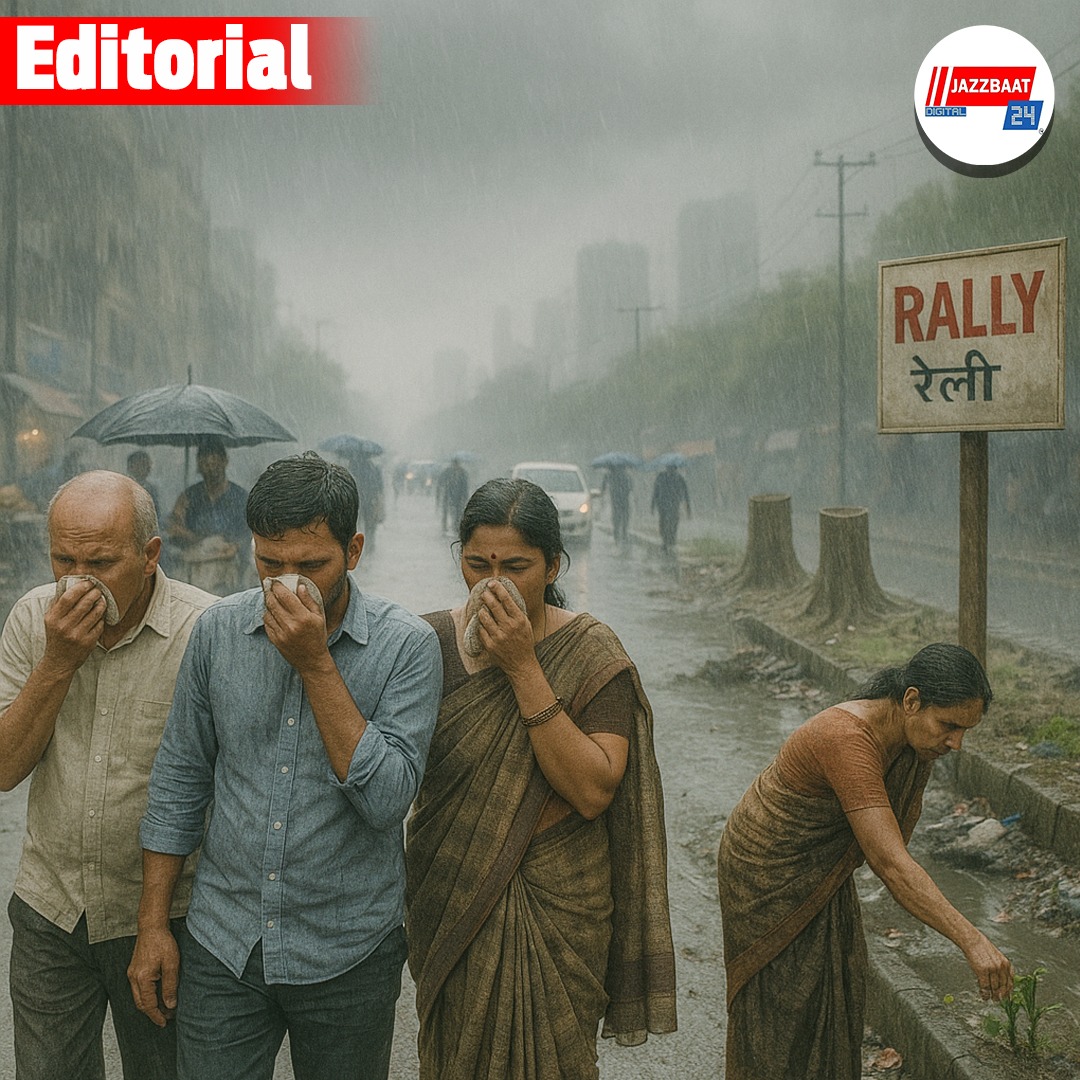
India is familiar with the fury of nature. Searing heatwaves, parched fields, catastrophic floods, and melting glaciers are annual copy. They are single disasters, however—these are manifestations of a crisis sweeping over us. Climate change is no longer knocking at our door; it has flung the door wide open. The only question now is: are we doing enough to resist?
The answer, unfortunately, is no.
**The Alarming Warning All Around Us**
Climate change is no longer a theoretical concept tucked in the creases of papers or in Western vocabulary. It's real life for Indians. In 2024 alone, we already experienced record heat in Delhi, killer floods in Assam and Himachal, and drought in Maharashtra. Chennai nearly ran dry. Mumbai coast erosion. Melting of our Ladakh and Uttarakhand glaciers at a disastrous rate, endagering biodiversity and water resources.
India is one of the most climate-exposed nations in the world. Yet our day-to-day actions—both at the policy level, at the civil society level, and even at our individual level—are not proportionate to the weight of this truth. We are fighting symptoms, not the disease.
**Where Are We Falling Short?**
India has made notable promises on climate. We’ve committed to net-zero emissions by 2070, and our push for solar energy is commendable. But promises mean little without urgent action.
The filthiest of all the fossil fuels, but the undisputed monarch of our energy, is coal. Trees are still being felled for land use development. Urbanization is taking place at the expense of green cover, water bodies, and natural drainage channels—creating heat islands and urban runoff. Environmental Impact Assessments (EIAs) have become procedural formalities rather than effective critics.
Though so, India's environmental legislations have been progressively replaced. The Ministry of Environment is more concerned with industrialization than with ecological balance. Climate change is dealt with only as an afterthought—after GDP rates, election speeches, and quick returns.
This disconnect is perilous. Economic growth without ecological responsibility is a sandcastle.
**The Awareness Gap**
Even more disturbing is the unawareness of the people. Most Indians are still unaware of climate change as something fictional or something that does not concern them. The heat, the floods, the devastation of crops—these are just "normal summer" or "bad luck monsoons," not direct results of a warming world.
It's not a knowledge deficit, however. It's a communications gap. Mainstream media only touch upon climate concerns lightly enough. Our schools and colleges barely include any environmental studies other than textbook ideology. Influencers discuss more about fashion than they do about living ecologically.
This needs to shift. Folks won't demand climate justice until they're aware of the ways in which their everyday action and policies are affecting the earth.
**The Young Will Not Turn Away**
Whereas the rest of the population are denying and refusing to connect the dots, Indian youth are increasingly not turning away. Indian students are protesting, recycling, petitioning, and going on strike. They are making climate art, starting eco-enterprises, and raising awareness on social media.
They are doing what institutions and adults ought to have done thirty years ago: taking the climate crisis as exactly that.
But young people can't battle it by themselves. Their voice must be amplified, not silenced. Their efforts must be supported, not shelved. This is not their battle alone—it's all of ours.
**The Way Forward: What Must Happen Now**
India doesn't lack solutions. It requires speed, scale, and integrity. Here's what we need:
1. **Move Away from Coal Culture Early**: The shift to renewables needs to pick up speed. Solar power, wind power, and water power need to energize new projects.
2. **Implement Green Laws**: Implement the stringency of EIAs. Punish the polluters—bureaucrats and corporates.
3. **Greenify Cities**: Cities need to get smart. Increase mass transit, protect urban trees, and restore lakes and wetlands.
4. **Educate to Make a Difference**: Incorporate climate literacy into school and college education. The young people have to be educated, not frightened.
5. **Empower Local Communities**: Conservation has to be driven by Panchayats, tribal communities, and farmer collectives. They understand the land.
**A Matter of Survival—Not Just Policy**
This is not environmentalism for environmentalism. This is a matter of survival. Climate change impacts all walks of life—agriculture, health, water, housing, and even security. Climate change exacerbates inequality. The poor disproportionately bear the brunt of floods, crop damage, and polluted air. Women and children are most hit by displacement and disease. The longer we delay, the greater irreversibility reaches.
India reaches a fork in the road. We can embark on a hard but unavoidable route to sustainability—or linger until calamity becomes fate. Days of courteous debate and incremental tokenism are over.
**Time Is Running Out**
India can lead a climate revolution. We possess numbers, ingenuity, and diversity to demonstrate internationally climate-resilient living. But first, we need to awaken—and act with purpose.
Nature is no longer whispering. It is screaming. And it will not wait for us to catch up.
The climate is changing. The question—will we?.